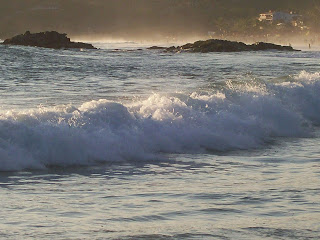Imagine going days without running water, relying on trucks to deliver what you need to drink, cook, and clean. Now imagine living under the scorching sun with no consistent way to quench your thirst. This is what nearly 600,000 Cubans have been facing over the past few months【6†source】【8†source】.
Cuba, known for its vibrant culture and resilient people, is battling a severe water crisis that threatens public health and basic quality of life. Aging infrastructure, climate change, economic sanctions, and mismanagement have combined to create a perfect storm. Despite the government's efforts, leaky pipes, broken water mains, and frequent droughts have left many Cubans without consistent access to water. In some areas, the situation is so dire that communities have taken to the streets in protest【7†source】【8†source】.
The Health Impact of Water Scarcity
The consequences of this water shortage extend beyond inconvenience. Lack of clean water has led to rising health issues like waterborne diseases and infections, as many are forced to use unsafe sources. With Cuba’s healthcare system already struggling, these public health risks are escalating, particularly for vulnerable groups like children and the elderly【7†source】.
This crisis in Cuba is a sobering reminder of how fragile water security can be, even in places where water used to be plentiful. But before we see this as a distant problem, we need to reflect on the situation right here in British Columbia.
BC: A Land of Water… For Now
It’s easy to think that BC, with its rainy climate and picturesque lakes, is immune to such crises. But that’s not the full story.
While BC has a wealth of water resources, the province faces its own growing challenges. Much of our water infrastructure—particularly in older cities like Vancouver—is aging and overburdened. Some pipes date back decades, resulting in water loss and frequent repairs. At the same time, rapid urban development is adding immense pressure on our infrastructure. High-rise towers and new neighborhoods require modern systems to supply fresh water and handle sewage, but these upgrades aren’t happening fast enough【7†source】.
On top of that, climate change is reshaping our water landscape. Droughts are becoming more common, and the melting snowpack, which traditionally fed our rivers and reservoirs, is diminishing. If this trend continues, BC’s once-reliable water sources could dry up during critical periods【6†source】.
A Call to Action: Respect and Protect Our Water
So, what can we learn from Cuba’s struggle? Water, despite being so fundamental, is often taken for granted. Here in BC, we are still in a privileged position, but the cracks in our system are starting to show. The combination of outdated infrastructure, rapid urbanization, and climate change is a ticking clock. Just as in Cuba, it’s only a matter of time before these issues could lead to shortages or even a full-blown crisis.
We need to act now:
- Support infrastructure upgrades: Advocate for the modernization of BC’s water supply and sewage systems. Government investment in infrastructure is critical to ensuring we don’t face similar shortages.
- Conserve water: Small actions—like turning off taps when brushing your teeth, fixing leaks, and using water-efficient appliances—can make a big difference.
- Raise awareness: Share stories like Cuba’s with friends and family. The more people understand the global impact of water scarcity, the more likely they are to take action.
Cuba’s crisis is a powerful reminder that water is not infinite. Respect it, protect it, and be part of the solution.
As the world changes, so must our relationship with water. Let’s make sure BC stays the land of plenty, not just for today, but for generations to come.





No comments:
Post a Comment